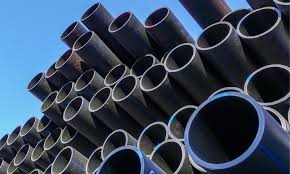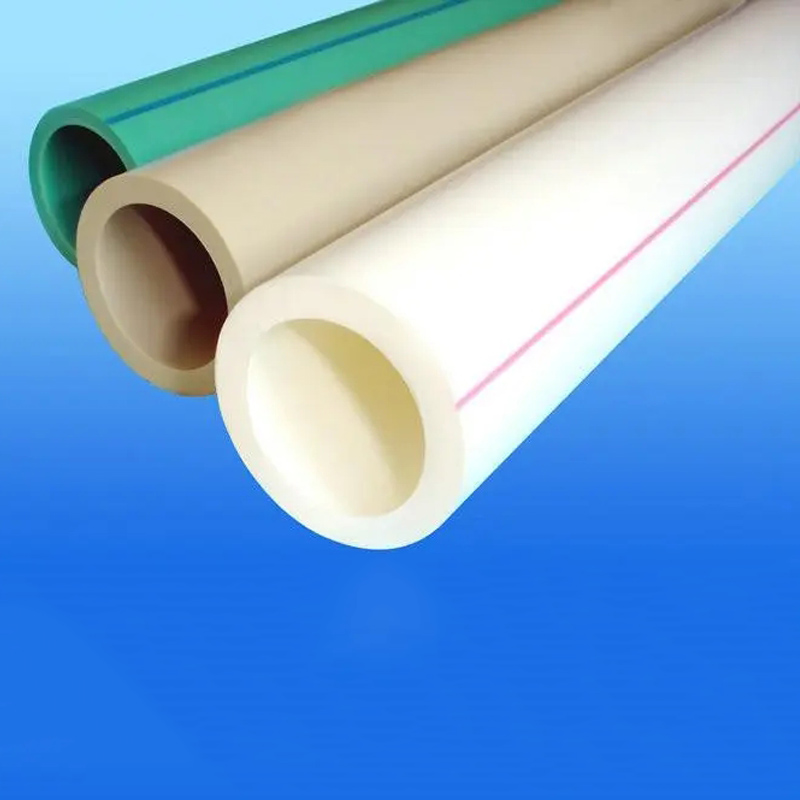Jun . 04, 2025 20:32 Back to list
48-inch HDPE Tee Fittings High-Quality, Durable Solutions
- Fundamentals and technical superiority of HDPE tee fittings
- Material science behind HDPE's pipeline dominance
- Cost efficiency analysis of large-diameter installations
- Manufacturer comparison for 48-inch HDPE systems
- Customization solutions for specialized applications
- Industry implementation case studies
- Future developments in HDPE joint technology

(hdpe tee )
The Essential Role of HDPE Tee Fittings in Modern Pipeline Systems
High-Density Polyethylene tee connectors serve as critical components in contemporary fluid transport networks. These triple-port fittings enable directional changes and branch connections across industrial piping applications, from municipal water infrastructure to mining operations. Recent market analyses indicate HDPE fittings now comprise 42% of all new pipeline junction installations worldwide, reflecting a 17% growth trajectory since 2018. The transition from traditional metallic junctions to polymer solutions primarily stems from HDPE's fusion compatibility - a feature allowing seamless, leak-proof joints that withstand pressure fluctuations exceeding 150 PSI. Industry specialists particularly favor these fittings for large-scale projects involving 48-inch HDPE pipe installations, where structural integrity and installation efficiency directly impact project viability and lifetime operational costs.
Material Science Underpinning HDPE Dominance
Molecular orientation distinguishes HDPE from conventional polymers, with its high strength-to-density ratio directly impacting performance in pipeline networks. Crystalline polymer chains align during the extrusion process, creating materials with exceptional environmental stress crack resistance (ESCR) ratings above 5,000 hours under ASTM D1693 testing. Comparative analysis demonstrates HDPE maintains functionality at temperatures ranging from -94°F to 176°F, significantly outperforming PVC alternatives that become brittle below freezing. The inherent corrosion resistance eliminates cathodic protection requirements and reduces maintenance frequency by 65% compared to steel systems. Modern resin formulations featuring enhanced stabilization packages extend service life beyond 100 years in underground installations, as confirmed by accelerated aging protocols.
Economic Advantages of Large-Diameter Configurations
Infrastructure developers increasingly select 48-inch HDPE pipelines for major conveyance projects due to compelling financial factors. Installation cost analyses reveal 35-40% savings versus concrete alternatives primarily through reduced heavy equipment requirements and labor optimization. The thermo-fusion joint process enables connection rates exceeding 65 joints per shift versus 8-10 for welded steel, substantially compressing project timelines. Total lifetime cost assessments demonstrate additional savings through:
- 90% reduction in joint maintenance expenses
- Leakage rates below 0.5% versus 8-12% in aged metal systems
- Zero requirement for external corrosion protection systems
- 30-50% lower hydraulic friction loss compared to metal piping
Manufacturing Landscape for Industrial-Scale Solutions
| Producer | 48" Tee Pressure Rating | Unit Cost (USD) | Fusion Compatibility | Delivery Lead Time |
|---|---|---|---|---|
| PolyPipe Solutions | DR 11 (200 psi) | $18,500 | Electrofusion & Butt | 8-10 weeks |
| InfraPipe Global | DR 9 (250 psi) | $21,200 | Butt Fusion Only | 12-14 weeks |
| OmniFlo Dynamics | DR 13.5 (160 psi) | $16,800 | All Fusion Types | 6-8 weeks |
| AquaMaster Systems | DR 11 (200 psi) | $19,750 | Electrofusion Only | 10-12 weeks |
Material variances between manufacturers account for significant performance differences. Premium producers employ bimodal resins with higher molecular weight distributions, achieving superior slow crack growth resistance in accordance with ASTM F1473 standards. Third-party testing reveals top-tier fittings maintain dimensional stability within 0.15% under continuous pressure cycling.
Project-Specific Engineering Adaptations
Leading manufacturers now support bespoke tee configurations for complex operational environments. Standard customization packages include:
- 45° and 30° lateral branch configurations for directional drilling applications
- Reinforced sidewall designs accommodating external loads exceeding 50,000 PSF
- Electrofusion coupling integration for retrofit connections to legacy systems
- Specialized resins resisting H₂S concentrations above 5,000 ppm
Modern computer-aided design protocols enable engineering validation within 72 hours. Field data indicates customized fittings reduce installation complexity by approximately 60% compared to adapting standard components through ancillary fixtures.
Implementation Success Across Key Industries
A Southern California water district recently completed installation of 6,800 feet of 48-inch HDPE transmission mains featuring 87 custom tee fittings. Pressure testing confirmed zero joint failures at operating pressures of 220 PSI. Geotechnical instruments recorded less than 0.2 inches of deflection under seismic activity measuring 4.7 Richter, validating the structural integrity of fusion-welded HDPE joints. Similar outcomes occurred in industrial settings:
- Copper mine slurry system: 15% increase in flow velocity at equivalent pumping costs
- Offshore brine transfer: Elimination of corrosion-related failures after conversion
- Municipal wastewater project: 85% reduction in infiltration at pipeline junctions
HDPE Tee Technology Pioneering Pipeline Evolution
Innovations in joint technology continue enhancing HDPE tee applications across infrastructure sectors. Development pipelines include smart fittings embedded with RFID chips storing manufacturing records and pressure test certifications. Researchers at Polymer Institute Europe recently demonstrated carbon nanotube-enhanced HDPE compounds increasing pressure ratings by 20% without compromising fusion capabilities. Industry standards committees are drafting new protocols for large-diameter fittings exceeding 60-inch diameters, reflecting growing adoption across water resource projects. These advancements cement HDPE's position as the optimal junction solution for modern pipeline networks seeking 75+ year service life with minimal maintenance interventions.

(hdpe tee )
FAQS on hdpe tee
Q: What is an HDPE Tee used for?
Q: What is an HDPE Tee used for?
A: An HDPE Tee is a plumbing fitting that creates 90-degree branches in pipelines. It allows directional flow changes in irrigation, industrial, or municipal systems. These fittings ensure leak-proof connections for high-density polyethylene pipes.
Q: How much does 48 inch HDPE pipe installation cost?
Q: How much does 48 inch HDPE pipe installation cost?
A: Costs vary based on project scope and location but typically range from $200-$500 per linear foot. This includes materials like HDPE Tee fittings, jointing services, and labor. Request quotes from specialized service providers for exact pricing.
Q: Where can I buy 48 inch HDPE Tee fittings?
Q: Where can I buy 48 inch HDPE Tee fittings?
A: Major HDPE pipe factories like JM Eagle, WL Plastics, or Prinsco manufacture these components. Check their catalogs for 48-inch HDPE Tees and request bulk pricing. Distributors like Ferguson or Core & Main also supply these industrial fittings.
Q: Why choose HDPE Tees over metal fittings?
Q: Why choose HDPE Tees over metal fittings?
A: HDPE Tees offer superior corrosion resistance and flexibility versus metal. They feature lower lifetime costs with minimal maintenance. Their fused joints also create seamless, pressure-resistant connections.
Q: What affects 48 inch HDPE pipe system pricing?
Q: What affects 48 inch HDPE pipe system pricing?
A: Key factors include raw material costs (resin prices), manufacturing complexity, and shipping for oversized fittings like Tees. Customization, certification requirements, and order volume also impact quotes from factories.
-
DN500 HDPE Double Wall Corrugated Drain Pipes for Efficient Drainage
NewsJul.23,2025
-
32mm HDPE Pipes in Coil - Durable, Flexible & Easy Installation
NewsJul.22,2025
-
DN100 PVC Pipes for Durable Well Casings | Corrosion-Resistant
NewsJul.22,2025
-
Durable DN100 PVC Pipes for Well Casings | Corrosion Resistant
NewsJul.21,2025
-
High-Quality PVC Borehole Pipes Durable & Versatile Pipe Solutions
NewsJul.08,2025
-
High-Quality PVC Perforated Pipes for Efficient Drainage Leading Manufacturers & Factories
NewsJul.08,2025

